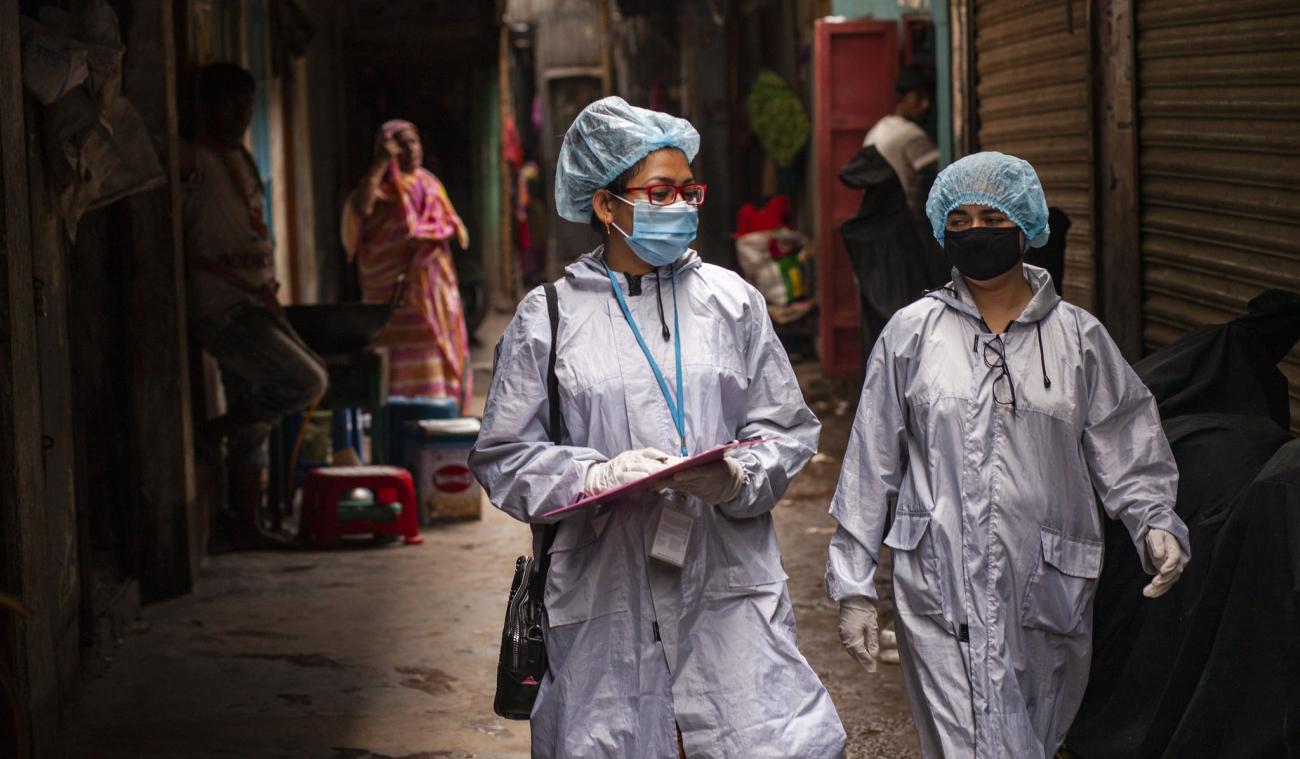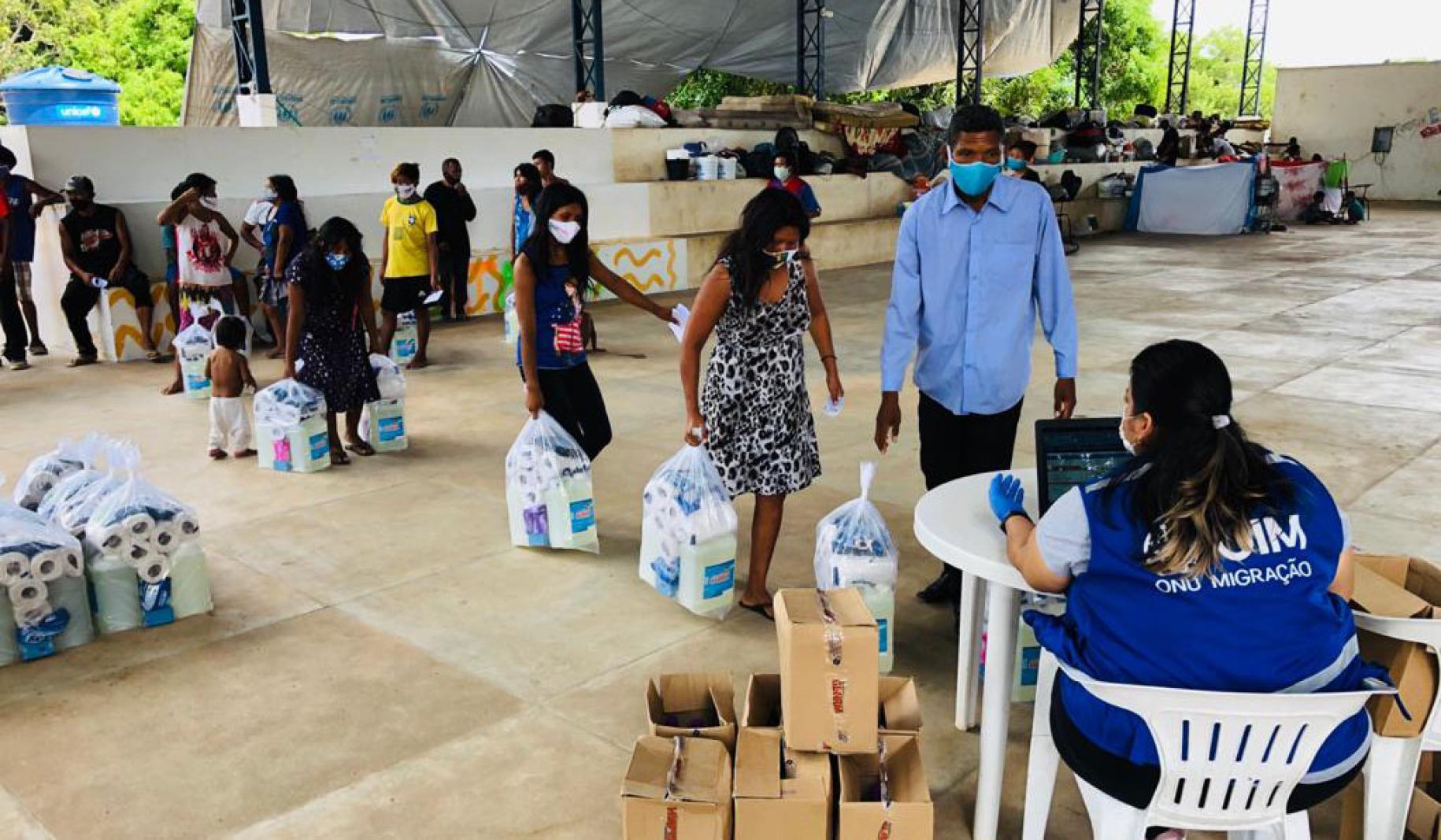Updates from the field #16: Helping to reduce inequities during COVID-19

UN teams worldwide continue to support with the environmental and socioeconomic recovery of the most vulnerable communities. Today, we highlight the coordinated effort of teams as of 30 June 2020.
Argentina
The UN team, led by Resident Coordinator Roberto Valent, has released a report on the socioeconomic and environmental impacts of COVID-19. These are new challenges for Argentina, a country previously affected by major structural problems that led to inequality. The new report shows that the economy will further contract by up to 8.2 per cent in 2020 if the pandemic is kept under control, and up to 10 per cent if there is a second outbreak of COVID-19 in the country.
While Argentina is among the top 50 countries with very high human development and has the capacity to produce food for 400 million people, the number of people receiving food assistance has jumped from eight to 11 million people since the start of the pandemic.
By the end of this year, the number of children living in poverty could rise to nearly 60 per cent, with up to 850,000 people losing jobs, according to the UN Children’s Fund (UNICEF) and the International Labour Organization (ILO).
Currently, Argentina has nearly 45,000 confirmed cases and slightly more than 1000 deaths due to COVID-19. The UN team in Argentina is working with authorities to address the health emergency and boost previously existing social protection schemes to help prevent people from falling into poverty. The UN has built 12 emergency hospital units and a COVID-19 unit dedicated to research and health interventions. The UN has also been supporting education and food assistance programmes to help the most vulnerable people, with a focus on children, youth, migrants and refugees.
Brazil
An update from the country level on our efforts to combat the pandemic: In Brazil, the UN team, led by Resident Coordinator Niky Fabiancic, there is working with authorities at the national and local levels with a special focus on protection of migrants, refugees, indigenous peoples and people in prisons.
According to the World Bank, 7 million Brazilians could be pushed into poverty this year if the emergency cash transfer mechanism adopted by the government does not reach the most vulnerable or is prematurely suspended. And according to the National Council of Justice, prisons recorded an 800 per cent increase in cases of infection between May and June.
The Pan-American Health Organization (PAHO) has developed a series of tools and guidelines to support national and local health authorities, with an epidemic calculator, in partnership with universities and top national research institutions.
On the border with Paraguay and Argentina, the UN Migration Agency (IOM) carried out an initiative, financed by the European Union, donating 80 infrared thermometers and over 2,000 masks to reinforce the protection of public agents working at the border.

For their part, UN Women provided technical support to launch a local campaign in northern states on domestic violence during the pandemic, and the United Nations Educational, Scientific and Cultural Organisation (UNESCO) launched a data initiative for the vulnerable informal urban dwellings, known as favelas, which reveals that Afro-Brazilians face unequal access to the job market and to education. The survey also said that 9 out of 10 Brazilians recognize that Afro-Brazilians are more likely to be violently approached by the police.
Malawi
In Malawi, where the virus has deeply impacted livelihoods and the economy, there are 730 cases and 11 confirmed deaths. The UN team, led by the Resident Coordinator Maria José Torres, is helping the Government respond by delivering life-saving goods in several parts of the country.
The UN and our partners have donated 15,000 face masks and 4,000 gowns to authorities. We have also provided care and shelter items for Malawians returning to their country, including from India and South Africa.
UNICEF has led efforts to install 45 emergency latrines in border posts and more than 1.4 million people have received messages on hygiene.
The UN and our partners have also tested more than 1,400 returnees, with nearly 170 of them testing positive and receiving care, as well as food and personal protection equipment. We are also supporting the Government with guidelines to reopen schools and we are distributing cash or food to 600,000 students currently out of school.
UNICEF is providing material for students studying at home in hard-to-reach areas. The UN team is targeting 8 million people with COVID-19 prevention information over the radio and mobile phones with another 180,000 reached with door-to-door campaigns and community drama sessions.
We are also partnering to address gender-based violence through hundreds of community victim support units. With Save the Children and the EU-UN Spotlight initiative to end gender-based violence, the team rolled out over 500 community victim support units, 40 per cent of survivors were women.
The World Food Programme (WFP) and the Food and Agriculture Organization (FAO) are leading our efforts to assess food security needs to identify hotspots to rollout the Government’s food and cash assistance programme.
Timor-Leste
We move now to Timor-Leste where the 24 people who had previously reported positive in April have now fully recovered, according to Government figures.
Our team there, led by Resident Coordinator Roy Trivedy, is supporting the easing of emergency restrictions, with the Government’s main concern being people crossing the borders and increasing the risk of the virus spreading in rural communities.
The World Health Organization (WHO), IOM, UNICEF, UN Population Fund (UNFPA) and the UN Development Programme (UNDP) have strengthened border surveillance, case detection and contact-tracing, along with offering quarantine and isolation facilities.
While thankfully COVID-19 has not taken any lives in Timor-Leste, the virus is seriously impacting the economy, particularly the small- and medium-sized businesses and vulnerable groups.
Local markets and transport facilities have reopened, following WHO and Government health and safety protocols. The UN is providing support from the Secretary-General’s COVID-19 Response and Recovery Fund.
ILO, UN Women, UNICEF, WFP and others have distributed $54 million to 270,000 households to help prevent people from sliding into poverty.
WFP has also launched its air service between Malaysia and Timor-Leste to transport humanitarian cargo and workers.
UNDP and the Resident Coordinator are assessing the socioeconomic impact of the virus and are supporting the Government’s Economic Recovery Plan, which is scheduled to last until 2023.





































